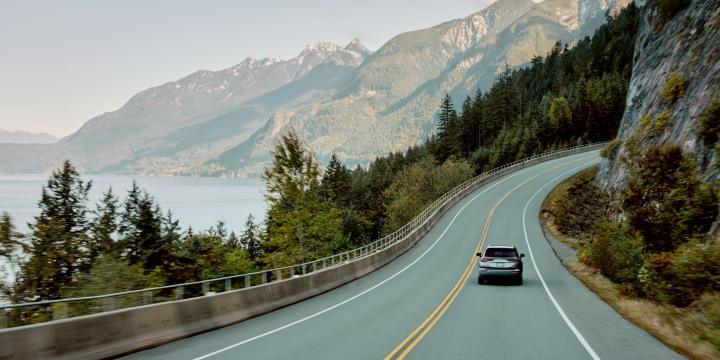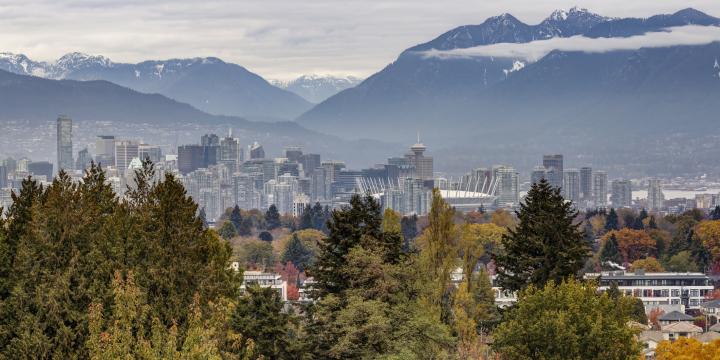
Supporting Indigenous Communities When Visiting Vancouver
Supporting Indigenous Communities when visiting Vancouver
Want to make a trip to what is known as Vancouver (the lands of the Coast Salish Peoples) more meaningful? In addition to staying at not-for-profit hotels like the YWCA Hotel that gives back to the community, you can also choose to immerse yourself in the rich tapestry of Indigenous cultures that have shaped this land for millennia.
By caring about Indigenous cultures while you explore breath-taking landscapes, sample amazing food and urban delights during a visit to Vancouver, you not only gain a deeper understanding of the diverse histories and traditions of the First Nations, but also play a role in promoting respect, appreciation, and support for the Indigenous communities who call this land home.
I want to learn about and appreciate Indigenous cultures in your city, what should I do?
Shop at Indigenous-owned shops
In Gastown and other parts of the city, you can find art galleries and shops that showcase Indigenous artwork, jewellery, and crafts. These spaces offer an opportunity to support Indigenous artists and learn about their unique artistic practices.
Take a look at what Indigenous stores you can visit via resources from:
- Shop First Nations: https://shopfirstnations.com/locations/canada/british-columbia/
- West Coast Wildflowers: https://wcwildflowers.ca/blogs/news/indigenous-online-shopping-and-responsible-wishlists
- Indigenous BC: https://www.indigenousbc.com/stories/responsible-wishlists
Visit Indigenous Galleries and historical sites
- Learn about Indigenous culture when you first enter Vancouver at the YVR airport: https://ywcavan.org/hotel/vancouver/understanding-indigenous-cultures-yvr-vancouver-airport
- Visit galleries, museums and other places promoting Indigenous culture: https://ywcavan.org/hotel/vancouver/discovering-indigenous-cultural-landmarks-during-your-visit-vancouver
- Check out other historical sites and places of significance in BC: https://www.indigenousbc.com/things-to-do/arts-culture/heritage-sites
Join Indigenous Tours and Experiences
Various tour companies in Gastown offer guided walking tours that incorporate Indigenous perspectives and share stories about the Indigenous history of the area. These tours provide an opportunity to explore the neighbourhood through an Indigenous lens:
- Talaysay Tours: From interpretive walks in Stanley Park to cultural canoe tours, Talaysay Tours offers immersive Indigenous cultural experiences in Vancouver and surrounding areas. Led by knowledgeable Indigenous guides, their tours provide insights into Indigenous history, traditions, and ways of life. https://www.talaysay.com/
- Takaya Tours: Takaya Tours offers guided kayak and canoe tours through the traditional territories of the Tsleil-Waututh and Coast Salish peoples. Led by experienced Indigenous guides, these tours provide a unique opportunity to explore the stunning waterways, learn about local history and marine ecology, and experience the rich cultural traditions of Indigenous Peoples. https://takayatours.com/
- Kia'palano: Kia’palano is an educational centre dedicated to highlighting the rich culture of the First Nations people and their connection to Capilano Suspension Bridge Park. https://www.capbridge.com/experiences/kiapalano/
- Half Day E-bike rental exploring Spirit Trail outdoor artwork: This half-day e-bike rental allows visitors to explore the Spirit Trail, offering a self-guided adventure to discover Indigenous-inspired public art installations while enjoying the beauty of the surrounding natural environment. https://www.vancouversnorthshore.com/deals/spirittrailoutdoorartworks/
Eat at an Indigenous-owned restaurant
- Salmon n' Bannock: Located in the Kitsilano neighborhood, Salmon n' Bannock is a renowned Indigenous restaurant that showcases the diverse flavours of Indigenous cuisine. The menu features dishes prepared with locally sourced ingredients, including traditional staples like bannock (a type of bread) and salmon. The restaurant also supports Indigenous artists by displaying their artwork. https://www.salmonandbannock.net/
- Mr. Bannock Indigenous Cuisine: Mr. Bannock Indigenous Cuisine is a food truck and catering service that specializes in Indigenous-inspired dishes. Their menu includes items like bannock tacos, venison burgers, and wild salmon. The owner, Chef Paul Natrall, incorporates traditional Indigenous ingredients and cooking techniques to create flavourful and culturally significant meals. https://www.mrbannock.com/
- SpiritBear Coffee (Port Coquitlam): SpiritBear Coffee, situated in Port Coquitlam, is a coffee shop with a mission to support Indigenous communities. They source their coffee from Indigenous-owned and operated farms, promoting fair trade practices and sustainable agriculture. The café also offers a selection of Indigenous-inspired pastries and snacks, providing customers with an opportunity to support Indigenous producers while enjoying their coffee. https://spiritbearcoffeecompany.com/
- Thunderbird Café (Whistler): Thunderbird Café, located in Whistler, is a cozy eatery that celebrates Indigenous cuisine and cultural heritage. The café offers a menu inspired by traditional Indigenous flavours, featuring dishes like bannock burgers, venison stew, and smoked salmon chowder. The café also showcases Indigenous artwork and hosts cultural events to promote Indigenous culture and storytelling. https://slcc.ca/visit/thunderbird-cafe/
Exploring Indigenous Lands and Histories
For a deeper understanding of the lands we now call Vancouver, we invite you to explore YWCA Metro Vancouver's blog on uncovering the lesser-known histories of these places. Learn about the rich cultural heritage and significant contributions of Indigenous communities through valuable research, oral histories and resources stewarded and developed by Indigenous communities and their allies. Discover the stories that shape our city and gain a greater appreciation for the lands and peoples who have called this area home for millennia. Continue your journey of learning and support: Understanding the Indigenous History of the Land Now Called 'Vancouver'
---------
This piece is consolidated by YWCA Hotel Vancouver as an ongoing effort to highlight or showcase Indigenous operators and promote Indigenous history and culture as our efforts toward reconciliation. Whether we are exploring these occupied lands as tourists or operating here as the tourism industry, it's important to know that we are uninvited guests on these traditional ancestral and unceded territories, and that we are inadvertently benefiting from this country's colonial legacy.
YWCA Metro Vancouver operates on the ancestral and unceded territories of the xʷməθkʷəy̓əm (Musqueam), Sḵwx̱wú7mesh (Squamish) and səl̓ílwətaʔɬ/Selilwitulh (Tsleil-Waututh) Nations. We also acknowledge the unceded territories of Semiahmoo and the Stó:lō peoples, including the Katzie, Kwantlen, Kwikwetlem and Qayqayt Nations, as well as the treaty lands of the Tsawwassen Nation.

